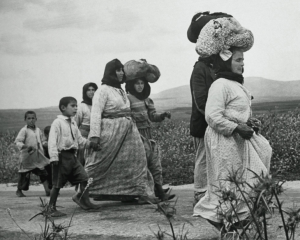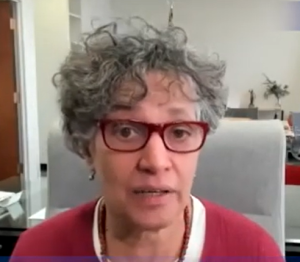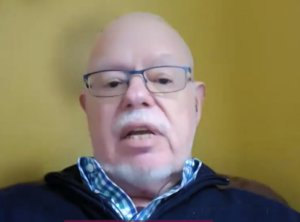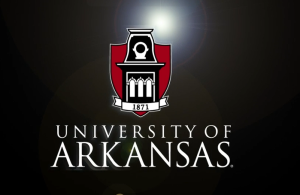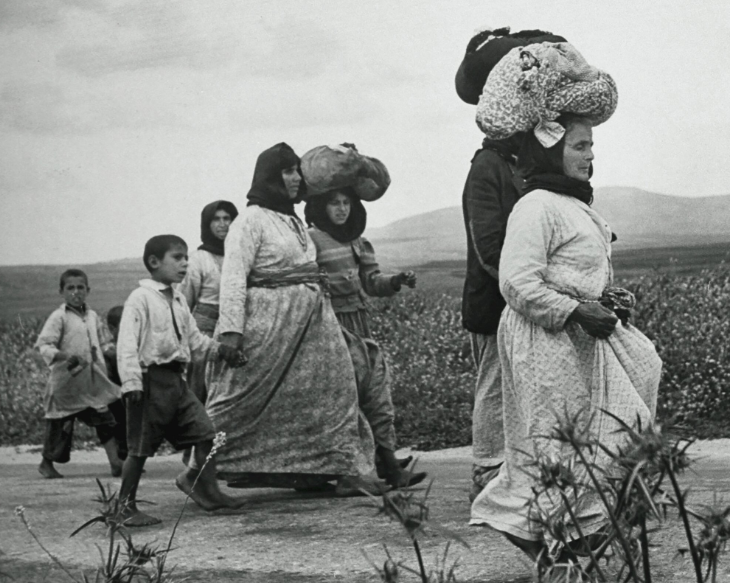8 September 2025
After a long battle, law students at CUNY won their long battle to see the University’s investments in firms implicated in Israel’s military aggression in Gaza when the Supreme Court of New York upheld their freedom of information request. It’s a victory for one group of students in a single university, but it is a major encouragement to student activists across the country, as this article in Mondoweiss explains.
CUNY students win landmark legal case demanding the school disclose investments linked to Gaza genocide
In a landmark victory for student activists, the Supreme Court of New York ruled that CUNY must disclose the school’s financial portfolio, specifically contracts with businesses connected to the genocide in Gaza.
Mondoweiss, by Claudia Gohn September 1, 2025
 CUNY Law Students for Justice in Palestine hold a press conference to announce and celebrate the Supreme Court of New York ruling that CUNY must disclose its financial portfolio, on August 27, 2025.
CUNY Law Students for Justice in Palestine hold a press conference to announce and celebrate the Supreme Court of New York ruling that CUNY must disclose its financial portfolio, on August 27, 2025.
In March 2024, then-first-year law student at the City University of New York’s Law School, Sarah Southey, filed a Freedom of Information Law (FOIL) request to obtain CUNY’s financial investment information, including what companies are held in their financial portfolio. This came months into the ongoing genocide waged by Israel in Gaza, as well as a growing pro-Palestine movement on college campuses across the United States. One of the demands of the student activists was—and still is at many colleges—for colleges and universities to disclose what financial ties they have with companies and businesses supporting the Israeli occupation in Palestine.
A couple of months later, in May 2024—mere weeks after the police raid and mass arrest at the CUNY students’ Gaza Solidarity Encampment—CUNY rejected the FOIL request.
“We were furious and angry. CUNY has constantly tried to silence organizing for Palestine. [They] called the NYPD to brutalize Palestine protestors. And so this just seemed one more example of repression against our organizing for Palestinian liberation,” said Southey, a member of both CUNY Law Students for Justice and Palestine and CUNY for Palestine.
Southey didn’t take no for an answer. Instead, she went to court, filing a suit with the New York Civil Liberties Union in November 2024. The case’s preliminary statement wrote that Southey, the plaintiff, “seeks these records to support student efforts to advocate for CUNY’s divestment from certain companies implicated in Israel’s military campaigns.”
And last week, Southey and the pro-Palestine movement won.
In a highly anticipated decision, the Supreme Court of New York ruled on August 20 that CUNY must disclose its financial portfolio, specifically contracts with businesses supporting or benefiting from the genocide in Gaza, such as Boeing, General Electric, Lockheed Martin, and Northrup Grumman. While this wasn’t a First Amendment suit, the case (and its ruling) has a direct relationship to students’ exercise of free speech and expression on campus. This win speaks to the influence of student organizing and the way the law can be used as part of this activism. And the precedent this sets for financial disclosure at other universities is yet to be seen.
“This was just one aspect of the campaign, but now that we have one disclosure, it is a massive win. It’s going to be hugely useful for us. We can demand that they divest from specific companies. We’ll know the pressure points,” Southey said.
Many were surprised at the win, and the decision is bringing hope and excitement. “The reaction was almost kind of a disbelief, but also understanding that this was a milestone we knew we were going to hit,” Nadia, a second-year law student at CUNY, told Mondoweiss, who added that the decision was especially surprising “given how much repression has been happening to all students all across the boroughs of New York.”

On August 27, CUNY Law Students for Justice in Palestine held a press conference to share and celebrate their win for the student movement. Students from several schools in the CUNY system came. They chanted for a free Palestine and “Fund our jobs and education, not genocide and occupation.”
But notably, they changed what has become a standard chant at student protests, “disclose, divest, we will not stop we will not rest,” to “divest, divest, we will not stop we will not rest.”
A handful of universities, including Brown University, Evergreen State College, and Northwestern University, have committed to disclosing their investments tied to Israel. However, the vast majority of universities have refused to meet students’ demands regarding disclosure or divestment.
CUNY disclosed its financial investments in private prisons in 2014 after students filed a FOIL request. At the same time, students at many schools advocated for divestment from private prisons, and some agreed, including Columbia University, where student protests calling for divestment from Israel have become international news.
“It wasn’t until this student who is a member of Students for Justice in Palestine and CUNY Law Students for Justice in Palestine reached out and sought the exact same records—this time, perhaps for a different purpose for the BDS movement—that CUNY pushed back and actually forced us to litigate the issue,” Veronica Salama, a lawyer at the New York Civil Liberties Union and litigator on the case, told Mondoweiss.
This decision also comes amid ongoing crackdowns on student protesters advocating for disclosure and divestment. Dozens of CUNY student activists were charged with felonies following last spring’s encampment. Last October, 30 CUNY staff and faculty were arrested during a disruption at a Board of Trustees meeting. And just this past May, a protest at CUNY Brooklyn College led to even more arrests.
Following universities’ use of law enforcement and sanctions to shut down protests and punish pro-Palestine activists, many have felt that freedom of speech and expression in higher education are under attack. But this court ruling gives these students a win, showing that their advocacy—which includes the exercise of free speech —works, putting pressure on their college’s administration.
“This is unfortunately something that we have been seeing all over the state where it is the content, the message of the individual speech that is what’s at issue here.” Salama said.
“This was not a First Amendment case, but it absolutely sends CUNY a reminder about its own statutory and constitutional obligations, and it just lets them know that they are on notice and that we are watching them and ensuring that they are dutifully obliging to their obligations.”
CUNY has not yet made clear when they will release these records or whether they will appeal the decision, nor have they indicated how this might affect their strategy when approaching negotiations with students. In a statement sent from a CUNY spokesperson to Mondoweiss, they wrote: “The University is reviewing the court’s decision, its legal options and possible next steps.”
While this ruling does not directly apply to private institutions—like Columbia University and Harvard University, where there have been large student movements—Salama still views this win as one that can benefit student protesters at many different colleges.
“This will certainly help students at public universities and public colleges across New York state,” Salama said. “This would not apply strictly to private universities, but I think much like we see with all forms of advocacy, when universities disclose records, whether they’re forced to do it or they do it willingly, that can have a ripple effect on the sort of pressure that we can put [on them].”
But one thing is for sure: activists at CUNY have no plans to stop pushing for divestment—and realize the potential of using the law as a tool for their advocacy. Student organizers, including Southey, are energized by this win and are taking this momentum forward.
“We’re going to use this energy to propel us forward, but also that anger. And always center what we’re here for, which is for Palestinian liberation,” Southey said. “So this is a win, and we’re celebrating. But more than that, we’re just using this energy to keep fighting and to make sure that we do what we can to get CUNY’s money out of these companies that are profiting off this genocide.”


